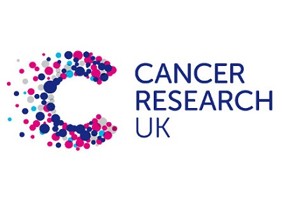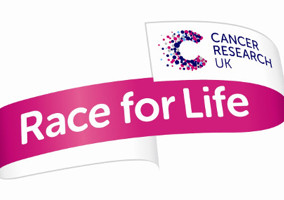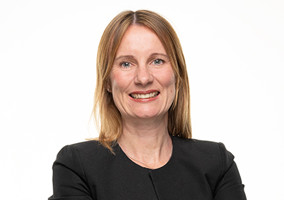This time last year I started as chief executive at Cancer Research UK; the UK’s largest cancer charity. It’s been a busy and inspiring 12 months – and they’ve flown by. A year on, I’ve been doing some reflection and I find myself more motivated than ever to make progress.
Like many, my life has been changed by cancer. I was drawn to Cancer Research UK because I’m simply not satisfied with what’s happening to the millions of people directly and indirectly affected by cancer each year.
Since I took on the role at Cancer Research UK, my top priority has been making progress towards our goal of three in four people surviving cancer for 10 years or more by 2034, by investing in research that will help us prevent, diagnose and treat cancer.
Over the past year I’ve had the privilege of meeting some of the most brilliant people all over the country who share the same drive for change, only reaffirming my belief that we must work in collaboration to achieve our goal. Cancer is one of the biggest social challenges facing the world: one in two people in the UK will get cancer in their lifetime. So, I see our role as acting as a convener, bringing together the best minds and breaking down barriers between organisations to reach our goals quicker. Although we’re a big charity, we know we can’t beat cancer alone and only by building the best team possible will we beat cancer together. With collaboration, we can go faster.
I’m immensely proud of the progress we’ve made in this area so far and we are aiming to be even more collaborative across all areas of the charity. When it comes to research, last year we launched our new Brain Tumour Award funding scheme, in collaboration with the Brain Tumour Charity. We had the first round this year and funded three multidisciplinary research teams. We’re a large cancer charity, spanning all types of cancer and all patient groups, which means we can operate at scale and have a huge impact, but working with other cancer charities means we are also able to reach their dedicated communities too, to benefit both research and policy.
This year, we launched a refreshed research strategy for children’s and young people’s cancers, which is another great example of collaboration. The strategy was developed with insight from UK and international researchers, and the parent community, and highlights the need to build research capacity in this area. It also emphasises the need for scientists and doctors from other disciplines to apply their knowledge to these cancers if we’re to make progress.
'Collaboration needs to happen on an international scale'
And we know that we can’t work on research in isolation. Collaboration needs to happen on an international scale if we are to make those pivotal breakthroughs. That’s why we set out our bold ambition this year with our partners in the USA and launched the International Alliance for Cancer Early Detection. Together, world-leading researchers will develop radical new strategies and technologies to detect cancer at its earliest stage, increasing the effectiveness of treatments and leading to improvements in survival for patients.
For a long time, Cancer Research UK has been also collaborating beyond the charity sector to make the biggest impact, within industry, which I am eager to continue - for example, licensing intellectual property to healthcare companies or helping create spin-out companies. To date, 33 companies have been spun out of research we’ve funded, accelerating the development of new treatment options for patients and ultimately saving more lives.
We’re also collaborating more in the political sphere. Competing on influencing can be counterproductive – we often hear from politicians that they hear different messages from different groups, and frankly this can give government an excuse not to act. So, where there is synergy and common ground, we want to share our platforms and work in coalition.
Our joint manifesto: 'To speak as one voice for people affected by cancer'
A great and recent example – which I’m so proud of – is our joint manifesto, which we’ve produced to influence the upcoming general election and shape the cancer agenda for the next government. We convened 29 cancer charities to publish one joint manifesto, to speak as one voice for people affected by cancer, covering everything from the financial implications of a cancer diagnosis to the importance of the UK acting as a world leader in clinical research. We couldn’t have done this alone and through collaboration we’re greater than the sum of our parts.
We’re collaborating with corporate partnerships too. Another top priority for Cancer Research UK is cancer prevention, and the two main preventable causes of cancer – smoking and obesity – are also risk factors for other diseases. So, we joined forces with Diabetes UK and the British Heart Foundation on a corporate partnership with Tesco.
This partnership predates my leadership, but it’s one of my favourite examples to share because it spans so many areas. We’re building the UK’s leading workplace health programme, training up pharmacists to support customers, and aligning in-store campaigns with national health campaigns. It works because each charity shares a common mission for improving people’s health. And for us, the benefit of pooling our skills and resources to do something this ambitious is fantastic to be a part of.
Across all areas – research, policy and partnerships – we need to recognise where we share a common goal and understand each other’s strengths. I’m confident this will help us reach our goals faster and so this is something I want to make sure we’re doing much more of.
My first year has been one of huge change for me, but for the charity too – having just completed an office move to our new home in Stratford. It’s been a year of political and economic turbulence too, which has brought uncertainty for us all.
But one year in, I’m looking forward to 2020 and am even more motivated and excited about what’s ahead. I’m going into my second year more confident that with the support of our staff, researchers, volunteers, clinicians, supporters and people affected by the disease, together we will beat cancer.
|
Related Articles












